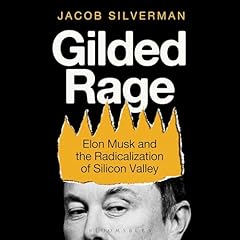
How China Escaped Shock Therapy
The Market Reform Debate
No se pudo agregar al carrito
Add to Cart failed.
Error al Agregar a Lista de Deseos.
Error al eliminar de la lista de deseos.
Error al añadir a tu biblioteca
Error al seguir el podcast
Error al dejar de seguir el podcast
Obtén 3 meses por US$0.99 al mes
 Exclusivo para miembros Prime: ¿Nuevo en Audible? Obtén 2 audiolibros gratis con tu prueba.
Exclusivo para miembros Prime: ¿Nuevo en Audible? Obtén 2 audiolibros gratis con tu prueba.
Compra ahora por $24.28
-
Narrado por:
-
Susan Ericksen
China has become deeply integrated into the world economy. Yet, gradual marketization has facilitated the country's rise without leading to its wholesale assimilation to global neoliberalism. This book uncovers the fierce contest about economic reforms that shaped China's path.
In the first post-Mao decade, China's reformers were sharply divided. Should China destroy the core of the socialist system through shock therapy, or should it use the institutions of the planned economy as market creators? With hindsight, the historical record proves the high stakes behind the question: China embarked on an economic expansion commonly described as unprecedented in scope and pace, whereas Russia's economy collapsed under shock therapy.
Based on extensive research, including interviews with key Chinese and international participants and World Bank officials as well as insights gleaned from unpublished documents, the book charts the debate that ultimately enabled China to follow a path to gradual reindustrialization. Beyond shedding light on the crossroads of the 1980s, it reveals the intellectual foundations of state-market relations in reform-era China through a longue duree lens. Overall, the book delivers an original perspective on China's economic model and its continuing contestations from within and from without.
©2021 Isabella M. Weber (P)2023 TantorLos oyentes también disfrutaron:




















Las personas que vieron esto también vieron:





hire a competent narrator
Se ha producido un error. Vuelve a intentarlo dentro de unos minutos.
My guess is that they did the search on Google. I tried to Google "how to prnounce guanzi", but Google automatically corrects "Guanzi" to "Guanxi", which means "relationship", a more commonly used Chinese phrase, and "xi" is pronounced as "shi". I assume that's why the narrator made the mistake.
Wrong Pronunciation for "Guanzi" the entire book
Se ha producido un error. Vuelve a intentarlo dentro de unos minutos.
However, the audiobook suffers from bad to at times completely incomprehensible Chinese pronunciations. The strength of the original book is the level of detail and wealth of different Chinese perspectives, but this comes with lots of Chinese names, naturally. It would have been tremendously beneficial to ensure at least a passable pronunciation of Chinese terms and names.
Impressive research and detail
Se ha producido un error. Vuelve a intentarlo dentro de unos minutos.
an immense and delicate work
Se ha producido un error. Vuelve a intentarlo dentro de unos minutos.


